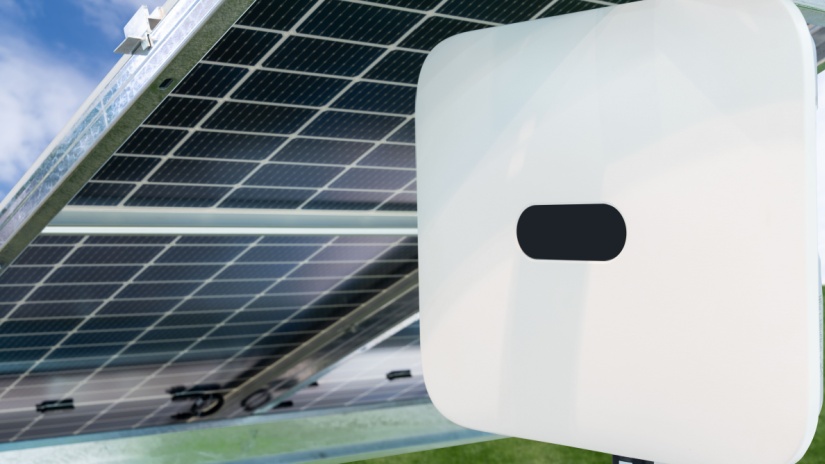Knowledge Centre
How do solar batteries work?

Solar batteries have changed how we use solar energy by allowing us to store extra power from solar panels. This stored energy can be used when there’s no sunlight, like at night or on cloudy days, ensuring we always have electricity.
Understanding how solar batteries work and their benefits is important for anyone wanting to get the most from their solar energy system. This article will explain how solar batteries function, the technology they use, and how they work with solar panels and the energy grid.
As residential solar power becomes more popular, people are increasingly curious about how solar batteries, the storage backbone of this renewable energy, work. If you’ve ever wondered about solar batteries, you’re in the right place. Here’s a simple explanation of their basic functions.
What are solar batteries for?
Solar batteries, also known as solar energy storage systems, store the extra electricity produced by your home's solar panels for later use. They are essential for maximising the efficiency of your solar setup, allowing you to use stored solar energy when the sun isn’t shining, like at night or on cloudy days.
According to the Department of Climate Change, Energy, the Environment and Water, “recent design improvements and price drops in lithium-ion batteries have made solar storage more viable than ever before.”
These advancements make it easier and more affordable to store and use solar energy, ensuring a reliable power supply and reducing dependence on the grid.
How do solar batteries work?
Solar batteries work by storing excess electricity generated by solar panels for later use. Here’s a simple breakdown of how they operate:
- Energy generation. Solar panels capture sunlight and convert it into electricity during the day. This electricity is used to power your home, and any excess energy is sent to the battery for storage.
- Battery charging. The excess electricity flows into the solar battery, charging it. Most modern solar batteries use lithium-ion technology, which is efficient and has a long lifespan.
- Energy storage. The stored energy is kept in the battery until it’s needed. The battery management system (BMS) ensures the battery charges and discharges safely, preventing overcharging and deep discharge.
- Energy usage. When the solar panels are not generating electricity (such as at night or during cloudy weather), the stored energy in the battery is used to power your home. This reduces or eliminates the need to draw power from the grid.
- Grid interaction. If your battery is full and your solar panels are still generating excess electricity, the surplus can be sent back to the grid. Some systems allow you to earn credits or payments for this excess energy through feed-in tariffs.
- Inverter role. The inverter plays a crucial role in converting the direct current (DC) electricity stored in the battery into alternating current (AC) electricity, which is used by most household appliances.
When your household needs electricity but your solar panels aren't generating any, like at night or during cloudy days, the energy stored in your battery is converted back into usable electricity by an inverter. This converted energy can then power your home’s appliances and lights, reducing your dependence on the electricity grid.
What are the benefits of solar batteries?
Solar batteries come with plenty of benefits. Some of those benefits include:
- Reduce reliance on the electricity grid
- Store excess solar energy for use during night or cloudy days
- Lower electricity bills by using stored energy instead of grid power
- Provide backup power during outages
- Increase energy independence and self-sufficiency
- Enhance the efficiency of solar panel systems
- Contribute to a reduction in carbon footprint
- Support the integration of renewable energy into the grid
- Potentially earn credits through feed-in tariffs for excess energy
- Improve home value by adding a renewable energy system
Contact Compare Energy
Understanding how solar batteries operate is crucial for maximising the benefits of your home solar energy system. Solar batteries help you move away from traditional energy sources and work towards achieving greater energy independence.
Knowing how these batteries function is also essential for evaluating their cost if you choose to include one in your solar setup, as well as for maintaining its optimal performance. Are you on a good solar plan right now? Call our team and we’ll talk you through your alternative options on 1300 790 106.

